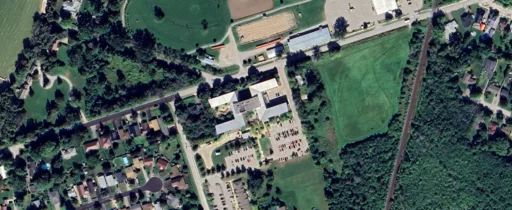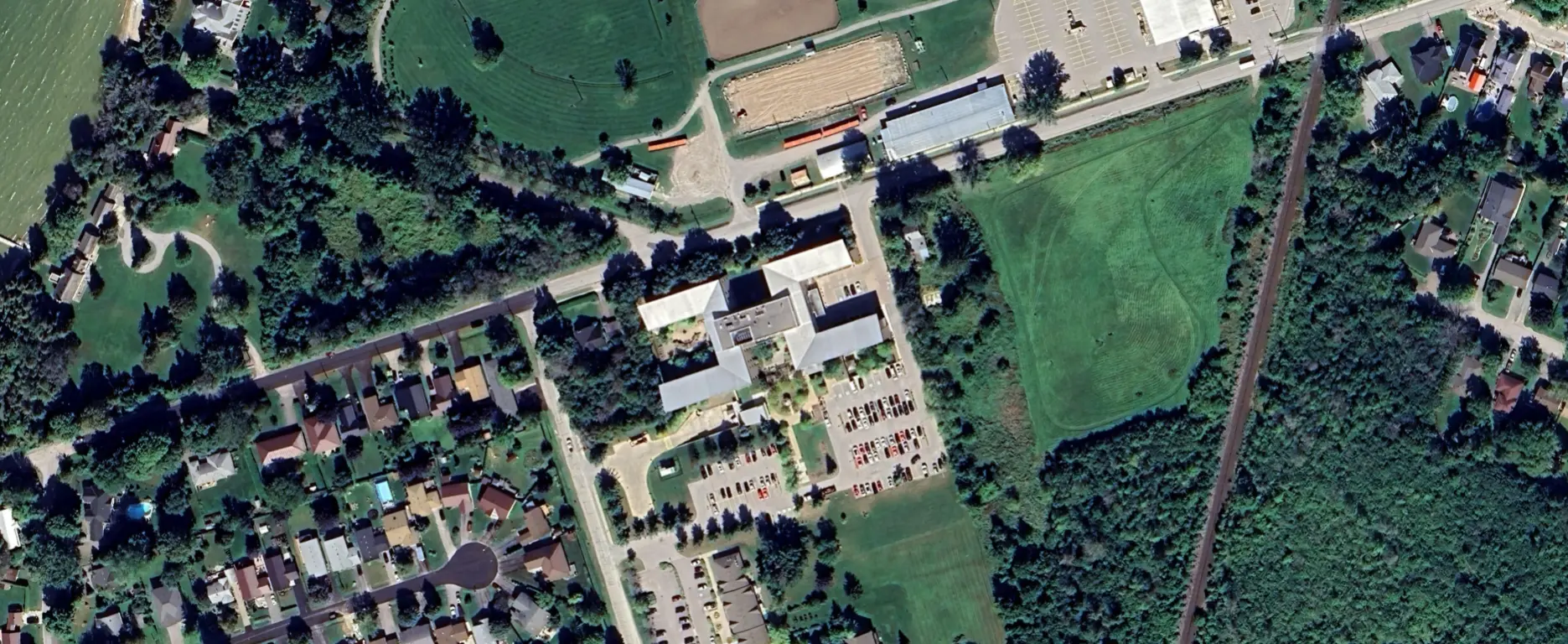Lakeview Manor (133 Main Street, Beaverton) is owned and operated by Durham Region. There are approximately 150 beds.
Inspection Reports for Lakeview Manor
Our research team carefully reviewed and summarized inspection reports for Lakeview Manor. You can read the original copies of the reports in the Government of Ontario website.
November 2023
The inspection report outlines significant findings and directives following an inspection. The inspection included types such as Complaint, Critical Incident, and Follow-up. The report was completed by Holly Wilson with assistance from Miko Hawken.
The inspection covered multiple intakes, including follow-ups on previously issued Compliance Orders, alleged resident abuse, improper care, resident neglect, falls, and multiple care item complaints. The focus areas of the inspection protocols included Resident Care and Support Services, Skin and Wound Prevention and Management, Infection Prevention and Control, Prevention of Abuse and Neglect, and Falls Prevention and Management.
- Infection Prevention and Control Program: The licensee failed to ensure all staff participated in the infection prevention and control program, specifically in relation to hand hygiene practices. Observations revealed several staff members, including Personal Support Workers and a Registered Practical Nurse, not performing hand hygiene during critical times like meal service and medication administration, posing a risk of infection spread.
- Additional Precaution Signage: The facility did not correctly follow the guidelines for posting additional precaution signage at the entrance of residents’ rooms. Incorrect or absent signage for residents under isolation precautions was noted, increasing the risk of infection transmission.
- Skin and Wound Care: The licensee’s skin and wound care program failed to provide strategies for skin and wound interventions following a resident’s injury. This oversight resulted in a lack of clinical interventions or assessments for a resident who had a fall and subsequently developed an alteration in skin integrity.
- Reassessment and Revision of Care Plans: After a resident experienced a fall, there was no initiation of clinical interventions or reassessment of their care plan. This failure to reassess and revise the plan of care as the resident’s needs changed resulted in unmet care needs.
- Transferring and Positioning Techniques: There was a failure to use safe transferring and positioning devices or techniques. A specific incident involved a PSW transferring a resident using a mechanical lift without the required assistance of a second trained staff member, contrary to the facility’s policy.
- Responsive Behaviours: The facility did not take appropriate actions in response to a resident who demonstrated responsive behaviors. This included a lack of reassessment and failure to document responses to interventions, leading to an altercation that resulted in injury to another resident.
- Plan of Care – Falls Prevention: The licensee did not ensure that falls prevention interventions specified in a resident’s plan of care were in place, leading to an incident where a resident fell and was injured.
A compliance order was given related to the plan of care, particularly in the context of falls prevention. It includes detailed steps the licensee must take to ensure compliance, such as staff education, written tests for care staff, daily audits for two weeks, followed by thrice-weekly audits for an additional two weeks, and corrective actions as necessary.
Moreover, the Regional Municipality of Durham was required to pay an administrative penalty of $1,100.
August 2023
The non-compliance issues identified in the inspection report, conducted between July 4-6 and 10-13, 2023, with an offsite inspection on July 14, 2023, are as follows:
- 24-hour Nursing Care: The facility failed to ensure the presence of a Registered Nurse (RN) at all times. Review of RN schedules showed gaps in RN coverage, which the Administrator and Director of Care (DOC) confirmed were due to staffing challenges.
- Pain Management: There was a failure to assess a resident’s pain using a clinically appropriate instrument after an unwitnessed fall and subsequent hospital transfers. Despite signs of pain and deteriorating conditions, no pain assessment was documented.
- Resident Altercations: The licensee did not minimize the risk of altercations between residents. An incident involving two residents, both with a history of responsive behaviors, resulted in an injury due to inadequate interventions and monitoring.
- Nutritional Care and Hydration: There was a failure to consult with a registered dietitian for changes in a resident’s swallowing ability and fluid intake. This oversight led to a resident not receiving necessary assessments and interventions.
- Infection Prevention and Control: The facility did not report a suspected outbreak to Public Health promptly, delaying potential interventions to control the outbreak.
- Infection Prevention and Control – IPAC Lead Role: The IPAC Lead did not ensure staff and residents adhered to required PPE protocols during an outbreak, putting others at risk of infection transmission.
- Resident Monitoring: Residents showing symptoms of infection were not adequately monitored on each shift, failing to track changes in their condition for timely intervention.
- Plan of Care: The facility did not adhere to a resident’s care plan for falls prevention, specifically regarding the use of hip protectors. This non-compliance resulted in a resident experiencing a fall and sustaining an injury.
April 2023
The inspection, conducted between February and March 2023, outlines the following non-compliance issues:
- Duty to Protect: The facility failed to protect residents from abuse by Resident #006. Over a period of five months, Resident #006 was involved in several incidents of physically responsive behavior causing injury to other residents. Despite changes in the resident’s care plan and physician recommendations, effective interventions to protect others were delayed, putting residents at risk of harm.
- Reporting Certain Matters to the Director: The facility did not immediately report an incident of physical abuse by Resident #006 towards Resident #015 to the Ministry of Long-Term Care Director, as required by legislation.
- Behaviour and Altercations: The licensee did not develop and implement effective interventions to minimize harm from Resident #006’s responsive behaviors towards other residents. Despite ongoing incidents, necessary measures were not implemented in a timely and effective manner.
- Infection Prevention and Control: The facility used multiple expired hand sanitizers throughout the building, which failed to maintain the required 70-90% alcohol content, posing a risk of ineffective hand hygiene and potential transmission of infectious agents. Staff did not consistently assist or encourage residents with hand hygiene before meals, increasing the risk of illness from transmission of infectious organisms. The facility did not adhere to the Director’s standard regarding hand hygiene support for residents before meals.
January 2022
The inspection report, conducted in January 2022, identifies the following non-compliance issues:
- Failure to Implement Falls Prevention Intervention: The facility did not ensure that a falls prevention intervention was in place for Resident #005 when in bed, as specified in their plan of care. This was observed during an inspection and acknowledged by the staff. The intervention was meant to decrease the risk of fall injury but was not applied as required.
- Failure to Keep Staff Informed About Resident: The licensee did not ensure that staff providing care to Resident #003 were aware of the contents of the resident’s plan of care. This specific case involved a falls prevention intervention that should have been applied when the resident was in their mobility device, but staff were not aware of this requirement. This oversight could delay staff response to potential falls.
September 2021
The inspection identified several critical issues of non-compliance, primarily concerning the care plans and fall prevention strategies for residents.
- Plan of Care: The licensee failed to ensure clear directions to staff and others who provide direct care to residents. The plans did not provide integrated and consistent assessments and were not updated as required. Additionally, the care specified in the plans was not always provided as stated.
- Fall Prevention and Management Policy: The licensee did not comply with their own Fall Prevention and Management Policy. This included failing to update care plans in a timely fashion after a resident’s fall, not reassessing residents by a physiotherapist after serious harm from a fall, and registered staff not completing required assessments regarding the cause and environmental factors of falls.
- Air Temperature Control: The facility failed to measure and document air temperatures in required areas of the home, including resident bedrooms and common areas.
- General Requirements for Organized Programs: The licensee did not ensure that there was a written description of each organized program, including protocols for resident referral to specialized resources where required.
February 2021
During the course of this inspection, Non-Compliances were not issued.

